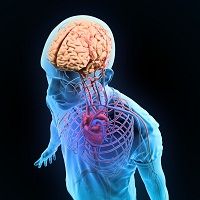Article
Psychological Symptoms Impact Rheumatoid Arthritis Disease Activity
Author(s):
For patients with rheumatoid arthritis, depression, stress, anxiety, and anger may compound their risk of cardiovascular diseases such as atherosclerosis.

For patients with rheumatoid arthritis (RA), depression, stress, anxiety, and anger may compound their risk of cardiovascular diseases such as atherosclerosis, according to findings published in Arthritis Car e & Research.
Researchers from Columbia University observed 195 RA patients and more than 1,000 non RA controls in order to determine whether psychosocial comorbidities are differentially associated with subclinical atherosclerosis in this population. The participants were recruited from the Evaluation of Subclinical Cardiovascular Disease and Predictors of Events in RA Study (ESCAPE). The researchers gathered data about the patients’ atherosclerosis status using computed tomography and ultrasound to measure coronary artery calcium and carotid artery thickness for plaque buildup. Then, the investigators compared the two groups.
“Understanding the risk factors that lead to greater mortality in those with chronic conditions like RA is extremely important,” lead investigator Jon Giles, MD, MPH, explained in a press release. “Our study is the first to investigate the association between psychosocial comorbidities and elevated risk of atherosclerosis in RA patients.”
The researchers found that higher anxiety, anger, depressive symptoms, and caregiver stress in the RA group were linked to increased risks for cardiovascular diseases in moderate to severe disease activity RA patients. This was true even after adjusting the findings for inflammation levels, and was seen in the RA patients and not in the controls.
Additionally, RA patients demonstrated further increased risk of carotid plaque due to job stress, but the researchers said increased social support was associated with lower carotid intima media thickness in those RA patients.
“Our study shows that depression, stress, anxiety, and anger are associated with atherosclerosis markers, which are known predictors of cardiovascular risk in RA,” first author Dr. Ying Liu concluded in the statement. “These findings highlight the importance of screening and treatment of heart disease risks factors to limit not only health care costs, but prevent morbidity and mortality for RA patients.”




